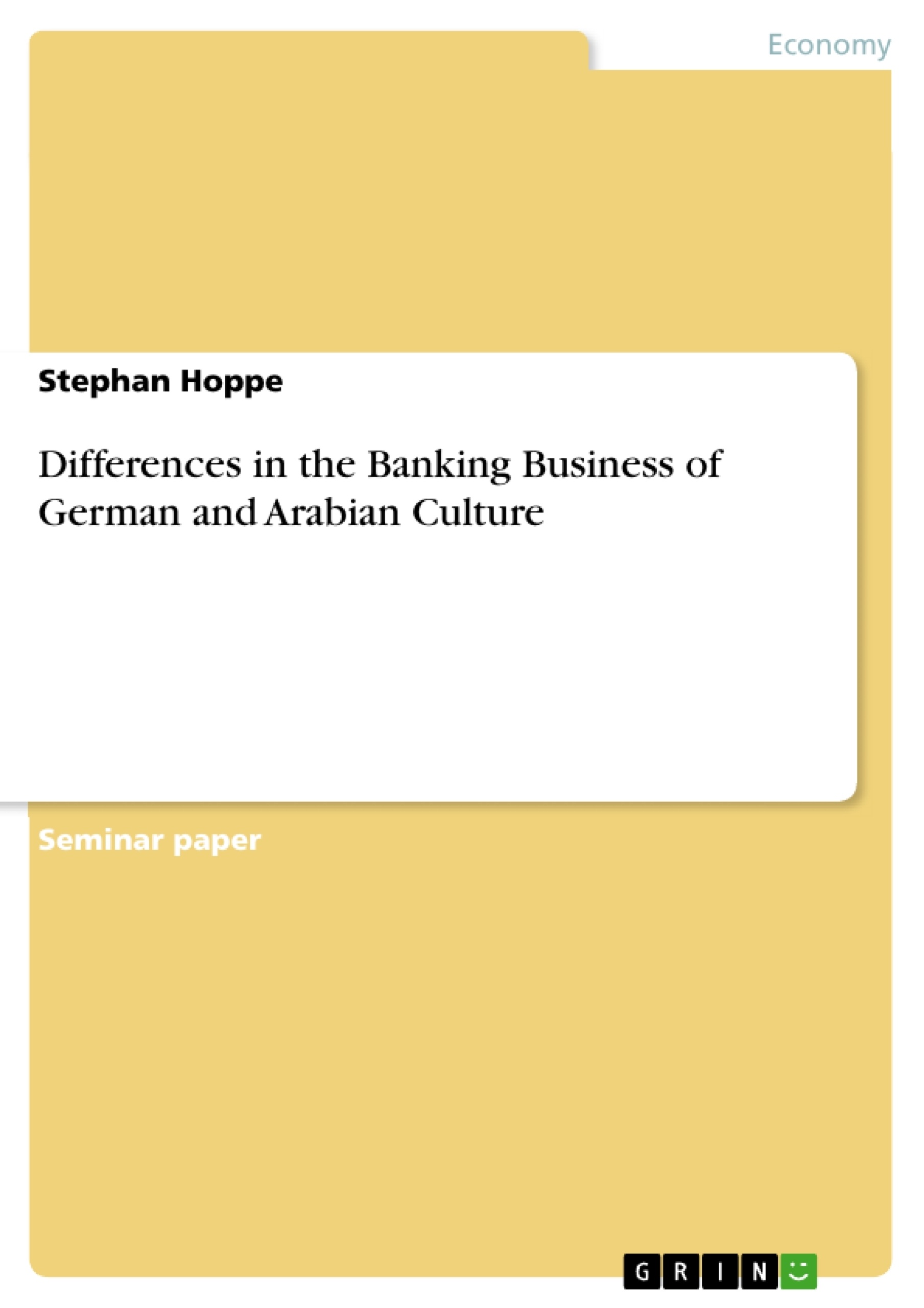The national crisis of the American banking system developed to a multinational crisis of the financial world and finally ended in an international implosion of the world’s economic system. The experts discuss how to stabilize this system in order to avoid a further collapse and critics reveal that the current crisis is the proof of failure of our traditional banking system. As a consequence of the financial crisis in 2007, a higher attendance of discussing alternative banking systems aroused the interest of this paper.
The Islamic banking sector survived that crisis without having any insolvencies and governmental help as it could be observed in the western world. In contrast to the western banking system, the modalities of financial transactions are characterized among many other features by its connection to real economy and abdication of interest-bearing or speculative investments.
This term paper will deal with the question wether the “Islamic Banking” could represent an alternative the predominating system in Germany. One aspect of this thesis will be if the Islamic system could replace the German one in the future. Firstly each culture will be analyzed and afterwards compared on the basis of Hofstede’s cultural studies. The main part will take care of the practical application of the theoretical elements by a result evaluation and critical analysis of the above-mentioned thesis. In section four a conclusion will be drawn as well as an outlook will be given on future development potentialities in the field of “Islamic Finance”.
Inhaltsverzeichnis (Table of Contents)
- Abbrevations
- Introduction
- Analysis and Comparison of Cultures
- Differences in the Banking Business
- Conclusion
Zielsetzung und Themenschwerpunkte (Objectives and Key Themes)
This term paper investigates the potential of "Islamic Banking" as an alternative banking system in Germany. The paper explores the possibility of replacing the existing German banking system with the Islamic model. The analysis will involve comparing and contrasting German and Arabian cultures through the lens of Hofstede's cultural dimensions, followed by a practical application of these theoretical elements in assessing the feasibility of Islamic banking in Germany.
- Cultural differences between Germany and Arab countries
- The characteristics and principles of Islamic banking
- The feasibility of implementing Islamic banking in Germany
- The potential impact of Islamic banking on the German financial system
- Legal and regulatory considerations related to Islamic banking in Germany
Zusammenfassung der Kapitel (Chapter Summaries)
- Introduction: This chapter provides an overview of the global financial crisis of 2007 and highlights the resilience of Islamic banking in the face of this crisis. It introduces the central question of the paper: whether Islamic banking can offer a viable alternative to the prevailing banking system in Germany. The chapter also outlines the paper's structure and key objectives.
- Analysis and Comparison of Cultures: This chapter delves into the cultural differences between Germany and Arab countries using Geert Hofstede's cultural dimensions. It focuses on two specific dimensions: "Power Distance" and "Individualism." The chapter provides insights into the cultural context of banking practices in both regions.
Schlüsselwörter (Keywords)
This paper focuses on key concepts such as Islamic banking, cultural comparison, Hofstede's cultural dimensions, German banking system, and the potential for alternative financial models. It explores the intersection of culture, finance, and regulations in the context of implementing Islamic banking in Germany.
Frequently Asked Questions
What are the core principles of Islamic Banking?
Islamic Banking is characterized by its connection to the real economy, the prohibition of interest-bearing (Riba) investments, and the avoidance of speculative (Gharar) transactions.
How did Islamic Banking perform during the 2007 financial crisis?
The Islamic banking sector survived the crisis without insolvencies or governmental help, largely due to its focus on tangible assets rather than speculative financial products.
Which cultural model is used to compare Germany and Arabian culture?
The paper uses Geert Hofstede’s cultural dimensions, specifically focusing on dimensions like "Power Distance" and "Individualism."
Could Islamic Banking be an alternative to the German banking system?
The term paper evaluates whether the principles of Islamic finance could represent a viable alternative or a complementary model to the traditional German financial system.
What are the main differences between Western and Islamic financial transactions?
Western systems rely heavily on interest rates and debt-based financing, whereas Islamic systems focus on profit-and-loss sharing and asset-backed financing.
What are the legal challenges for Islamic Banking in Germany?
The paper considers regulatory and legal frameworks that might impact the implementation of Sharia-compliant financial products in the German market.
- Arbeit zitieren
- Stephan Hoppe (Autor:in), 2014, Differences in the Banking Business of German and Arabian Culture, München, GRIN Verlag, https://www.grin.com/document/384958



